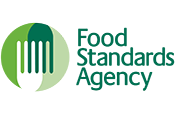Hygiene for food businesses
Storing and handling eggs safely
Guide
You should store, handle and prepare eggs carefully to prevent the spread of salmonella bacteria.
Salmonella can cause very serious food poisoning, particularly in:
- elderly people
- unwell people
- people who have a weakened immune system
- pregnant women
- babies and toddlers
Some eggs may contain salmonella bacteria. Bacteria can be on the shell or in the egg itself. Salmonella can spread to other foods if eggs come into contact with them - or with hands and cooking utensils.
Ten tips for working with eggs safely
There are 10 simple steps that food businesses can take to prevent salmonella bacteria in eggs causing food poisoning:
- Keep eggs away from other foods, when they are still in the shell and when you have cracked them open.
- Cook eggs and foods containing eggs thoroughly.
- Use pasteurised egg for raw or lightly cooked foods.
- Always wash and dry your hands thoroughly after touching eggs or working with them.
- Never use damaged or dirty eggs.
- Serve egg dishes straight away or cool them quickly and keep chilled.
- Take care not to splash egg onto worktops, utensils or other foods.
- Clean food areas, dishes and utensils thoroughly and regularly with warm soapy water after working with eggs.
- If breaking eggs to use later (sometimes called 'pooling'), keep the liquid egg in the fridge and take out small amounts as needed.
- Use all 'pooled' liquid egg on the same day and do not add new eggs to top it up.
- Food Standards Agency Northern Ireland028 9041 7700
Also on this site
Developed with:
